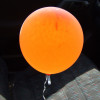Question
I know that humans generally share 99% of our genes. With 25,000 genes, that means we differ by only 250 genes. It seems to me that we cannot possibly differ by the same 250 genes since mutation, random assortment and crossing over are all random processes. Thus, my question is, how many genes does a random pair of humans actually share. Thanks.
Answer
We put this to Naked Scientist Kat Arney...
Kat -这是一个很棒的问题,但这是排序of based on a misunderstanding. Because this is a phrase that we often hear that humans, we share 99% or 99.9% of our genes with each other. And, actually, if you took two random humans, there would be 4 million differences in the letters of our DNA. These chemicals called bases (they're like the letters of the alphabet of our DNA).
But the key thing is that the way John's phrased this question. It's like if you imagine our genome as a recipe book that makes all the recipes that our cells need, you're imagining that we would have say 250 recipes, whole recipes that were different between us. That's not the case. It's more like there is 0.1% of 4 million differences in single letters (kind of typos) scattered through the whole of this recipe book. And, obviously, between males and females (people who are genetically male and genetically female), there's a whole chromosome difference.
So the two women in this studio, myself and Eleanor, we have two X chromosomes whereas the chaps here, I'm assuming, have and X and a Y chromosome. I haven't karyotyped everyone - I don't know for sure, but that's my assumption.
So basically, it's not that we have whole genes that are different, there's this kind of smattering of variations through the whole thing. However, some people do have changes, mutations, variations that do mean that whole genes, or even whole chunks of DNA are missing, or even whole bonus chunks. In Down Syndrome, you've got a whole extra copy of one of the chromosomes. So there are lots of variations between us but it's not like saying this whole gene is there, this whole gene is different.
Chris - Is it a bit like - you used a recipe analogy Kat - so you're making a cake and it says you've got to have the flour, and the eggs and the margarine, and the raisins, and so on. And rather than getting your raisins from that shop, you've gone and got a sort of different type of raisin. They're still raisins but they're slightly different raisins and, therefore, the recipe you cook up will make a slightly different cake but it's effectively still a fruit sponge?
Kat - Yes. Or it could be raisins versus sultanas, or oranges versus lemons. And, actually, just in our own genes we have a lot of variations. We make, if you think of it in terms of recipes, we make several hundred thousand different recipes called "proteins" that make ourselves function, keep us functioning healthily, but we only have about 20-25,000 genes. So there's a lot of switching in and switching out anyway, and these tiny, tiny variations scattered between them make us all unique and different.




Comments
Add a comment